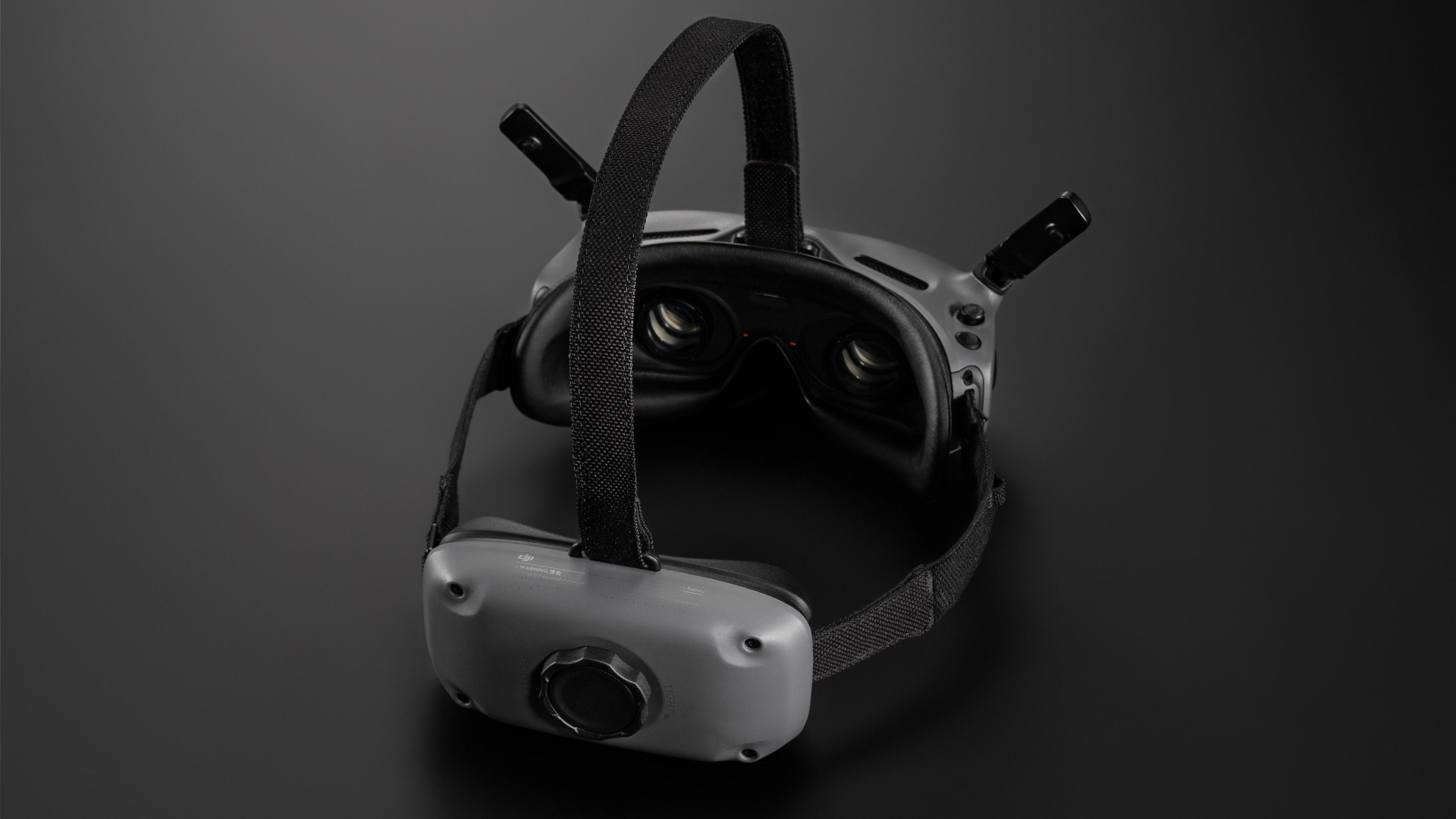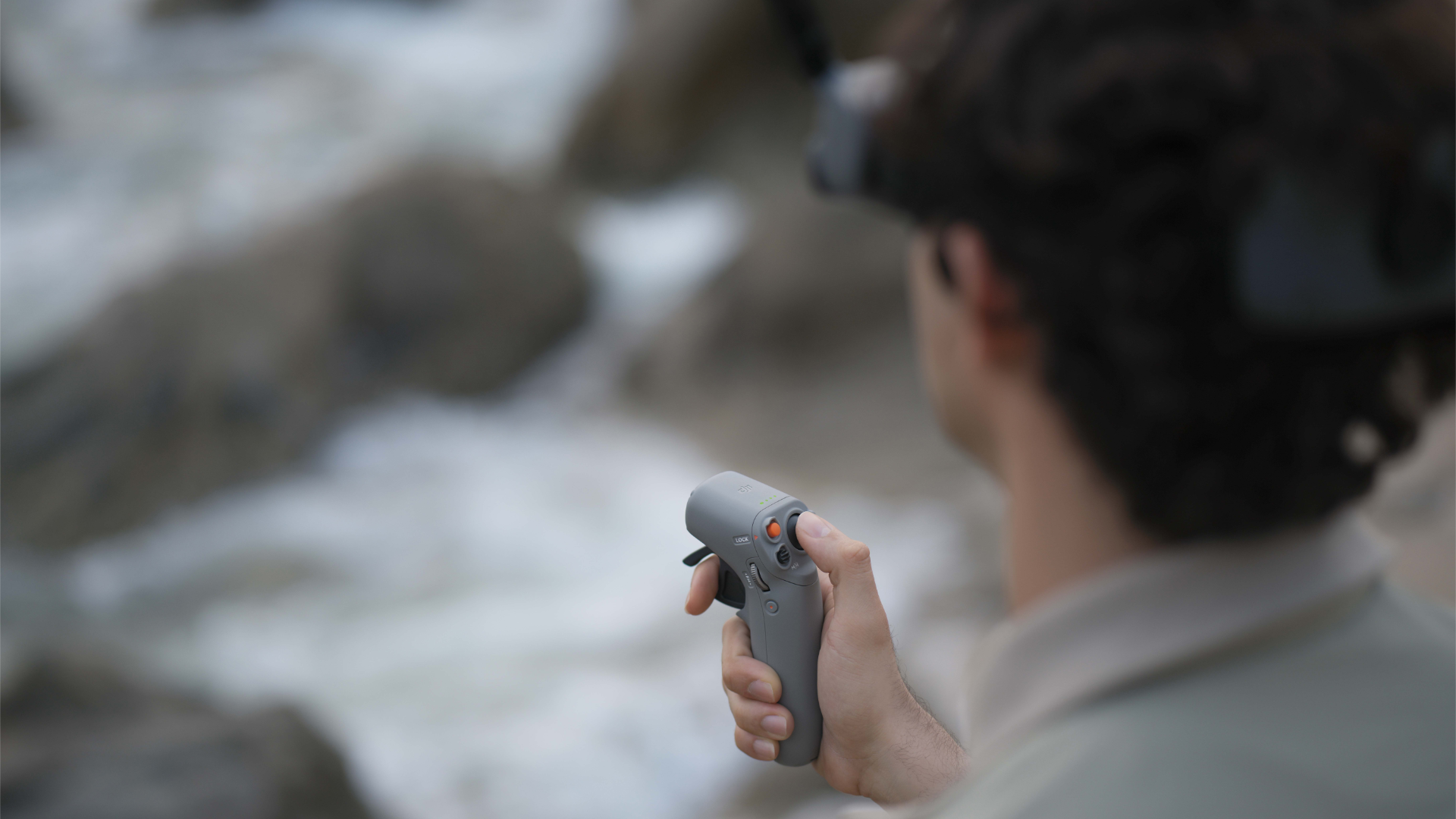DJI streamlines Avata FPV drone experience with new goggles and joystick
The Goggles Integra and RC Motion 2 have liftoff

With intuitive controls and a crash-resistant design, the DJI Avata is already one of the easiest ways to experience the fun of first-person drone flight – and one of the best DJI drones you can buy. And DJI is now elevating the enjoyment factor further, by way of two new peripherals: the DJI Goggles Integra and the DJI RC Motion 2.
As with most FPV drones, pilots operate the DJI Avata using a video headset and wireless remote control. With these latest upgrades, DJI is aiming to enhance the sense of immersion by streamlining those accessories. And in the Goggles Integra, it’s making the experience more affordable.
Available now, the DJI Goggles Integra adopt an “integrated design” which incorporates the battery into the headband, rather than the pocketable cell used by the DJI Goggles 2. This revised battery position eliminates the dangling cables which might otherwise inhibit a pilot’s head movement while flying an Avata drone.
What it also does is make the new Goggles Integra heavier than the Goggles 2, to the tune of 120g. According to DJI, though, the built-in battery is “balanced” for up to two hours of comfortable flying. How the two setups compare will only be revealed by a side-by-side test.

In-flight upgrade?
Internally, the Goggles Integra use the same pair of 0.49-inch micro OLED displays as the Goggles 2. That means you get the same 100Hz refresh rates and the same 700 nits brightness. Also identical is DJI’s O3+ video transmission system, which relies on two antennae to stream a 50Mbps feed over a maximum range of 6.2 miles, with 30ms latency.
That’s impressive, given that the DJI Goggles Integra costs $150 / £150 / AU$230 less than the Goggles 2. But that price reduction also comes with a couple of compromises. The Goggles Integra have a smaller field of view than the Goggles 2, at 44 degrees versus 51. They also do without diopter adjustment, meaning users will need to compensate for visual impairments using interchangeable lenses.
There’s also no Wi-Fi or Bluetooth connectivity built into the Goggles Integra, so you won’t be able to stream video content from connected devices – although integrated GPS does mean you can fly without your smartphone to hand. If those sacrifices sound worth the saving, you can pick up the DJI Goggles Integra today for $499 / £579 / AU$869. You can also buy them as part of DJI’s Avata Explorer Combo – including the drone and RC Motion 2 remote – for $1,278 / £1,099 / AU$1,809.
Sign up for breaking news, reviews, opinion, top tech deals, and more.

Remotely different
Where the Goggles Integra are streamlined and less expensive than the Goggles 2, the DJI RC Motion 2 goes the other way: for $40 / £20 / AU$50 more than the DJI Motion Controller, you get a motion-sensitive wireless grip with upgraded controls and inputs.
As before, the RC Motion 2 lets you pilot the DJI Avata via your hand movements. What’s new is a two-way trigger which allows you to throw the drone into reverse and back out of sticky situations. Also revised is the joystick on top, which stands more prominently for precision thumb control. And on the controller’s side now resides an FN dial, allowing you to adjust ISO, shutter speed and other camera settings without touching the goggles.
These refinements aren’t revolutionary, but they promise to make pilot interactions with the Avata drone just that little bit slicker – which could be key to its continued appeal among FPV beginners and enthusiasts. The DJI RC Motion 2 is available as a standalone controller for $239 / £159 / AU$279 You can also pick one up as part of the Avata Explorer Combo for $1,278 / £1,099 / AU$1,809, or the Avata Pro-View Combo – including the Avata and Goggles 2 – for $1,388 / £1,229 / AU$1,989.

For more than a decade, Chris has been finding and featuring the best kit you can carry. When he's not writing about his favourite things for Stuff, you'll find Chris field-testing the latest gear for TechRadar. From cameras to classic cars, he appreciates anything that gets better with age.